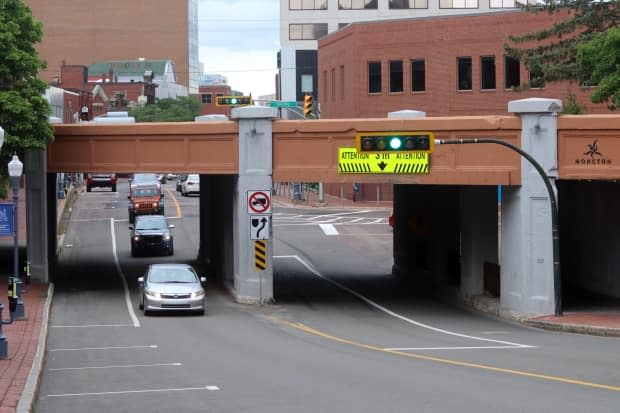Moncton won't match Fredericton noise bylaw, cites enforcement challenges

Moncton won't match a new Fredericton noise bylaw that sets maximum decibel levels for motorcycles.
Moncton staff outlined proposed changes to city's noise bylaw during a committee meeting Monday but said the changes don't include decibel limits because of enforcement challenges.
Nick Robichaud, Moncton's general manager of legal and legislative services, said RCMP have told the city the force doesn't use decibel meters that can show if a vehicle is in violation of the limit.
"They don't use decibel readers anywhere in Canada — in any jurisdiction that they provide enforcement services for — and it's not something that they would be prepared to use here in Moncton," Robichaud told councillors.
A staff report to council says RCMP have told the city the force wouldn't purchase such equipment given "other operational and training priorities."

CBC News asked New Brunswick RCMP on Tuesday afternoon to clarify the discrepancy. On Thursday afternoon, Cpl. Hans Ouellette said New Brunswick RCMP doesn't currently have access to decibel meters.
"It is our understanding that this applies to the RCMP nationwide, as there is no national training standard for this tool," Ouellette said.
However, RCMP in White Rock, B.C., have been using decibel meters and held a campaign last year cracking down on loud vehicles by issuing 45 drivers with tickets over six months. This month, the detachment south of Vancouver tweeted about ticketing more than 60 drivers for being loud so far in 2021.
White Rock RCMP Staff Sgt. Kale Pauls told CBC they use the meters together with observations by officers to enforce decibel limits in that province's law.
City staff don't have pull-over power
Without RCMP using decibel meters, Robichaud told council it would be left to city's bylaw enforcement officers. But, Robichaud said they don't have the power under provincial legislation to pull over vehicles.
Deputy Mayor Charles Leger, who has chaired the Codiac Regional Policing Authority board, said the city contracts the RCMP to police the city.
"So somewhere along the line, what's important to the municipality is what the RCMP are contracted to deliver," Leger said during the committee meeting.
Fredericton's bylaw passed in April allows drivers to be ticketed $250 if motorcycles exceed 92 decibels while the engine is idling and 96 decibels when the engine is at any speed beyond idle.
Normal conversation is about 60 decibels while a lawn mower is about 90 decibels, according to B.C's public health website. It says sounds above 85 decibels are harmful, depending on the length of exposure and whether a person is using hearing protection.
Robichaud said that after the Fredericton bylaw passed, multiple Moncton councillors emailed staff about enacting a similar provision.

While they won't include a decibel limit in the bylaw, Robichaud told council there is a mechanism that could be used for noise enforcement by police.
The province's Motor Vehicle Act requires vehicles be "equipped with a muffler and exhaust pipe or pipes in good working order and in constant operation so as to prevent excessive or unusual noise, and no person shall operate a motor vehicle equipped with a muffler cut-out, by-pass or similar device."
Robichaud said RCMP can pull over loud vehicles to check their exhaust systems and issue tickets if they violate the law.
The city's current bylaw prohibits noise "likely to cause a public disturbance or otherwise disturb inhabitants" between 11 p.m. and 7 a.m.
The new bylaw would apply all day.
The bylaw allows the city to determine if noise is causing a disturbance based on factors such as the time of day, duration, volume and location of the noise.
Examples in the bylaw of noise that could be disturbing include shouting, singing, whistling, music, snowmobiles, all-terrain vehicles, pneumatic hammers, construction equipment, machinery and animal noises.
Various exemptions are included such as for emergency vehicles, emergency construction work, construction work between 7 a.m. and 10 p.m., church bells, golf courses, public transit, and snow removal equipment.
Fines for violating the bylaw start at $140 and can go as high as $2,100.
Won't restrict 'jake brakes'
The proposed bylaw received first reading this week and comes up for second and third reading on Aug. 18.
Robichaud said the city also has determined it has the power to prohibit the use of "jake brakes," or engine compression braking by heavy equipment and transport trucks that produces a loud hammering noise.
However, since municipal enforcement staff can't pull over vehicles it would again prove difficult to enforce.
Instead, the city is proposing an education campaign and to continue to lobby the province to be able to enact restrictions on jake brake use in municipal limits.

